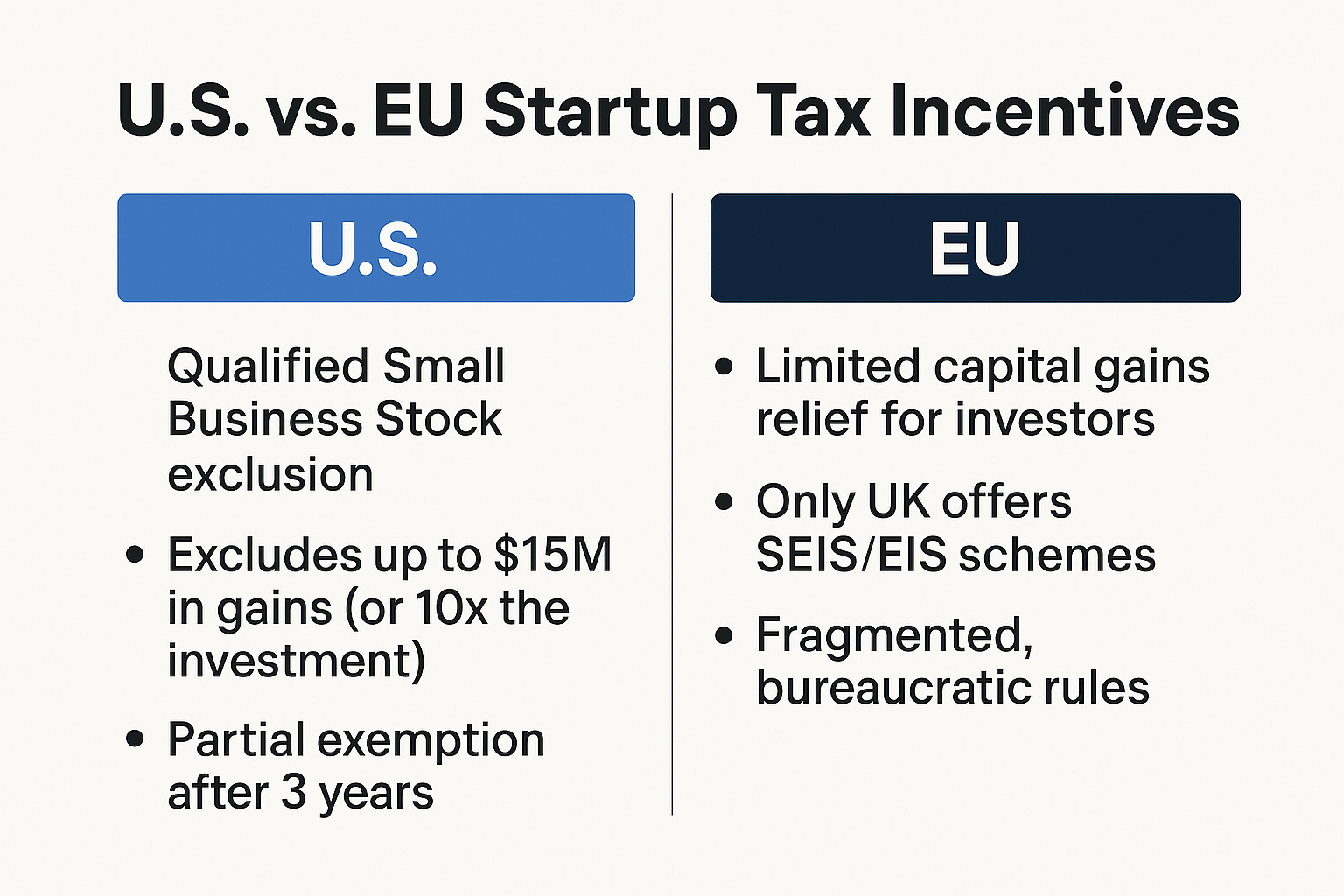Summary
Why VCs Prefer the U.S. Over Europe for Startup Investing
- U.S. Expansion of QSBS Tax Break
- Excludes up to $15M in capital gains (or 10× your investment) from taxes
- Partial exemption begins after only 3 years, down from 5 (Frost Brown Todd)
- Higher asset eligibility now up to $75M
- EU Tax Regimes
- Only the UK’s SEIS/EIS is remotely investor-friendly; most countries offer little or no CGT relief (Altar.io)
- Fragmented, bureaucratic and smaller scale
- Conclusion
The U.S. has created a much stronger incentive structure for VCs—unless the EU reforms dramatically, capital and talent will continue heading west.
The U.S. Just Made Startup Investing Un–European
Tax reform in the U.S. has supercharged the Qualified Small Business Stock (QSBS) exclusion, making it one of the most aggressive startup tax incentives in the world.
What’s Changed:
- Investors can now exclude up to $15 million in capital gains—or 10× their stake - from taxation (Frost Brown Todd).
- Full exemption after 5 years, but partial - 50% - after just 3 years .
- Qualified companies are allowed to have up to $75 million in assets .
- Lock in gains even more efficiently via trust stacking.
Why it matters: In 2021 alone, investors claimed $51 billion in QSBS gains, mostly going to individuals earning over $1 million (Gizmodo).
Europe’s Response:
While Europe offers R&D credits and tax incentives for startups, the investor-side benefits are scarce. According to Altar.io, only the UK’s SEIS/EIS schemes offer meaningful capital gains relief, with other nations offering minimal or no exemptions (Altar.io).
This patchwork system underscores a key weakness: no unified, scalable approach for rewarding early investors, deterring large-scale or international VC activity.
The VC Perspective:
- U.S.: Robust startup ecosystem + generous tax incentives = high expected ROI
- EU: Fragmented policies, high CGT (30–45%), limited scale
Bottom Line: Unless Europe harmonizes policy and ramps up investor-side incentives, we’ll continue seeing capital—and startups—lean heavily toward the U.S.
“Capital goes where it’s treated best. Right now, that’s not Europe.”





















.jpg)






















































